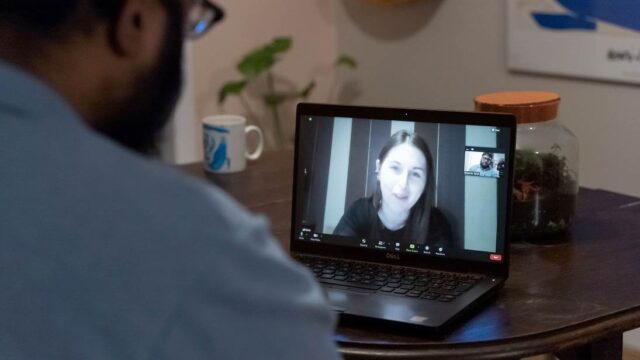Volunteers participating in an innovative new service, which matches them with a disabled person to do activities together, have been praised for helping to combat loneliness.
Loneliness, already high amongst disabled people, got worse during the pandemic, with shielding and cuts to care support leaving many people feeling cut off from their local community. According to new research* by the disability charity, Sense, three in five (63 per cent) disabled people in London now describe themselves as ‘often or always lonely’, rising to more than three quarters (77 per cent) of young disabled people (aged 16 to 24).
There are now fears the Government decision to end Covid restrictions in England will make the situation worse, with many disabled people and families feeling they have no choice but to stay in insolation to protect themselves and their loved ones.
The ‘Buddying’ service, run by the national disability charity, Sense, first started in 2017, bringing disabled and non-disabled people together for activities in their local community. During the pandemic the service was extended to support online meetups, which enabled many more people to benefit from it.
Hundreds of people from different parts of the UK now meet on a weekly basis for hour-long buddy sessions, which may involve taking part in an activity, watching a TV show together or simply having a conversation about a shared interest.
With high demand for the free service, Sense wishes to increase the number of people that can access it, but this is dependent on recruiting more volunteers.
Richard Kramer, Chief Executive at Sense, said:
“Even before the pandemic, disabled people were disproportionately affected by loneliness. They face many barriers to making friends and meeting people, such as the need for accessible transport and buildings, financial support and appropriate social care.
“The pandemic has made the situation worse, but the wonderful generosity of volunteers is helping us to tackle the issue head-on.
Volunteers tell us they have a great time on the service, meeting new people, learning skills and experiencing a sense of achievement.
“We must grow the service to support more people, so hope more volunteers come forward.”




